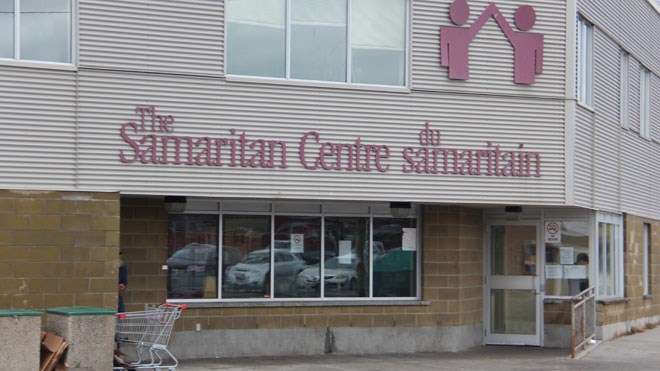Homeless people in Sudbury who are also battling drug and alcohol addiction could soon have a place to go on cold nights, at least for the rest of the winter.
Meeting Monday, members of the community services committee approved a plan that would see either beds open at the Salvation Army or at the former downtown police station, on a trial basis running until the end of March.
Staff is currently in discussions with the Salvation Army, and officials from Toronto are expected in town Thursday to discuss whether they can participate.
Traditionally, residents have to be sober to sleep on homeless beds offered by the Salvation Army. Since the Elgin Street Mission reduced its operating hours this winter – only opening overnight when an extreme cold weather alert is issued – homeless people who are drunk or high have struggled to find a place to sleep.
The Mission said they stopped 24-7 operations this year for a few reasons. It cost them about $50,000 a year to stay open, since the city only funded beds during cold weather alerts. Also, they aren't set up as a sleep shelter, and many residents were sleeping on floors and tables.
But the loss of the Mission in the winter prompted repeated protests by the Sudbury Coalition Against Poverty, who pressed the city to act, as well as to boost support for those who are struggling to avoid homelessness, and those trying to furnish new accommodations. Council directed staff to look for ways to accommodate those affected by the closure of the Mission.
Gail Spencer, co-ordinator of shelters and homelessness, told members of the committee that in recent discussions, the Mission said it didn't want to reopen for the rest of the winter.
“The main reason for that is they don't have the ability to provide beds for the people who would be there,” Spencer said.
A local church they talked to might have been willing, but they would need help creating all of the infrastructure. So staff approached the Salvation Army, which has room in one of its locations.
“It would be open to everyone,” Spencer said, of what they asked of the Salvation Army. “There would be no intake or registration required. It would be a place people could go in and sleep on cots.”
Local Salvation Army officials need approval from their superiors in Toronto to open and operate a shelter that is contrary to their policies requiring sobriety.
“That's the stage it's at now,” she said. “We did discuss the need for them to relax the zero-tolerance policy that they have, and we'll see what their response is.”
Ward 3 Coun. Claude Berthiaume wondered how long it would take and what would happen if the Salvation Army said no.
“When would this be in effect? Because winter is now,” Berthiaume said. “If this doesn't work out, we have to have an alternative.”
The alternative, Berthiaume was told, was the former police station on Larch Street, which is vacant and downtown. It could be utilized quickly for the next couple of months.
“We must have some cots somewhere,” he said. “If this doesn't work out, with the Salvation Army, then we should put them in the old police station on Larch Street.”
In the end, motions were approved to permit opening the temporary beds in cooperation with the Salvation Army, or in the Larch Street building, which would be run by the city. Funding will come from transitional money provided by the province to help cities adjust to cuts in funding for homeless programs.
Correction: An earlier version of this story incorrectly termed the temporary beds as a "wet shelter." While intoxicated clients would be allowed in, they would not be permitted to continue to consume intoxicants once inside, as is the case with wet shelters.
